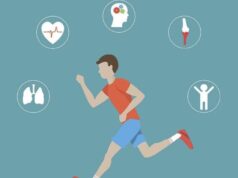
Many of us have spoiled our lifestyles in a certain manner by adopting unhealthy habits. A dire need for change is required in our lives. Change is a very inclusive decision and we all need to bring certain changes for a positive life. The process of change cannot happen if someone asks us to change ourselves. When someone commands us to bring the change, we can never bring a change in ourselves, because it is not happening according to our will. The journey of change depends on our will. It is a particular moment that changes us for a lifetime. That particular moment has the power of molding the habits of a person.
This scenario can be generally applied to all the fields of life but here we are specifically talking about incorporating healthy habits by leaving drugs and bringing a change in our life. As we know the use of drugs has become very common and people have made the use of drugs their part of life.

Tool of change
For bringing change, the most powerful tools are love and counseling. These tools are intensely powerful and know the tacts of compelling another person to change his life. If any of your friends use drugs or alcohol, he won’t ever stop until or unless he starts suffering. He won’t quit this habit even if you ask him to quit because he is not willing to bring a change. Usually in the case of drugs, families, and friends blackmail the addict that they will end their relationship with them if they don’t quit. In such cases, the addict becomes more stubborn and lonely.
They start avoiding every person who aggressively lectures them about the use of drugs. The right way is to do counseling positively. Deal with love and care because at this moment the addict needs attention. Only love and care can mold him towards healthy change. This is the reason that counseling and therapies cover a major part of the journey at a recovery center.

Therapies and variations within them
Therapies and counseling work on the behaviors of people and play a vital role in involving the addict in the entire treatment. Therapies help in modifying the attitudes and behaviors of drug use. The entire process helps them to focus on their life skills, handle stress in every situation, and not let the social and environmental triggers control their drug cravings. Today, we will discuss two behavioral therapies that are addressed very effectively for controlling the use of drugs.

•Cognitive Behavioral Therapy
This therapy is the best method to minimize the chances of relapse when the addict is dealing with consuming drugs and alcohol. It is majorly used when a cocaine-addicted person is treated. We know that cocaine is highly addictive and the treatment of this drug is not a cup of tea. Cognition refers to our mindset and decision and we know that deciding on quitting drugs is directly linked to our cognitive functions. This therapy focuses on our learning process and tends to develop healthy behavioral patterns.
Through this therapy, individuals are taught how they can identify their problematic acts and learn to correct them by applying skills that can help in the journey. The basic agenda of this therapy is to develop and enhance self-control. For this, therapists use collective strategies and ways so that addicts can explore the pros and cons.
When a person is at an early stage and realizes that he should go for treatment before the situation gets out of control then there is a maximum chance of smooth recovery and painless drug withdrawal effects. On the other hand, when a person is fully addicted, he may suffer from painful withdrawal effects and such addicts need various counseling sessions. Self-monitoring is the crux of the entire treatment that knowing yourself, finding your triggers, and working on them. Once you start learning about it, you will come to know the positive and negative concerns regarding your treatment.
Research has proved that the behaviors learned through cognition and behavior last longer and leave a long time effect on the thinking of the addict. The combination of such therapies with medicine helps in maximizing the advantages. Browse this site for more information.

•Motivational Enhancement Therapy
Before talking about this therapy, think that when you want to achieve a certain goal, what do you need the most? The answer is motivation. You need to set an inspiration in front of you that will help you to drive towards your goal that you want to achieve in life. Quitting drugs and making a decision to leave them for life is also like a goal of an addicted person. They need inspiration and motivation in their life so they can instill positive thoughts in their minds regarding treatment. When a person is focused on his treatment, the entire process and strategies of treatment work in a smooth manner because the will of the addict is strong enough to fight the hurdles.
For this purpose, motivational enhancement therapy is designed before the start of treatment and five sessions are held during and after the treatment so that the motivation level of the addicted patient remains consistent and strong enough to fight the cravings. The power and game of treatment can get weak if the addict loses motivation.
Motivation and self-control are very important when you want to achieve something. This is why treatment at the recovery center is recommended because, at the center, the addicts meet the individuals who got recovered. They share their motivational stories that how they got through the entire treatment process that strengthens the belief of the addict on the treatment. They start thinking that if other individuals are back on track then they can also return to normal life. The patient counseling approach of this therapy is strong enough to initiate positive behavior in the addict and engage him in positive skills. The self-motivational statements used by the therapists during the sessions work like wonder.









